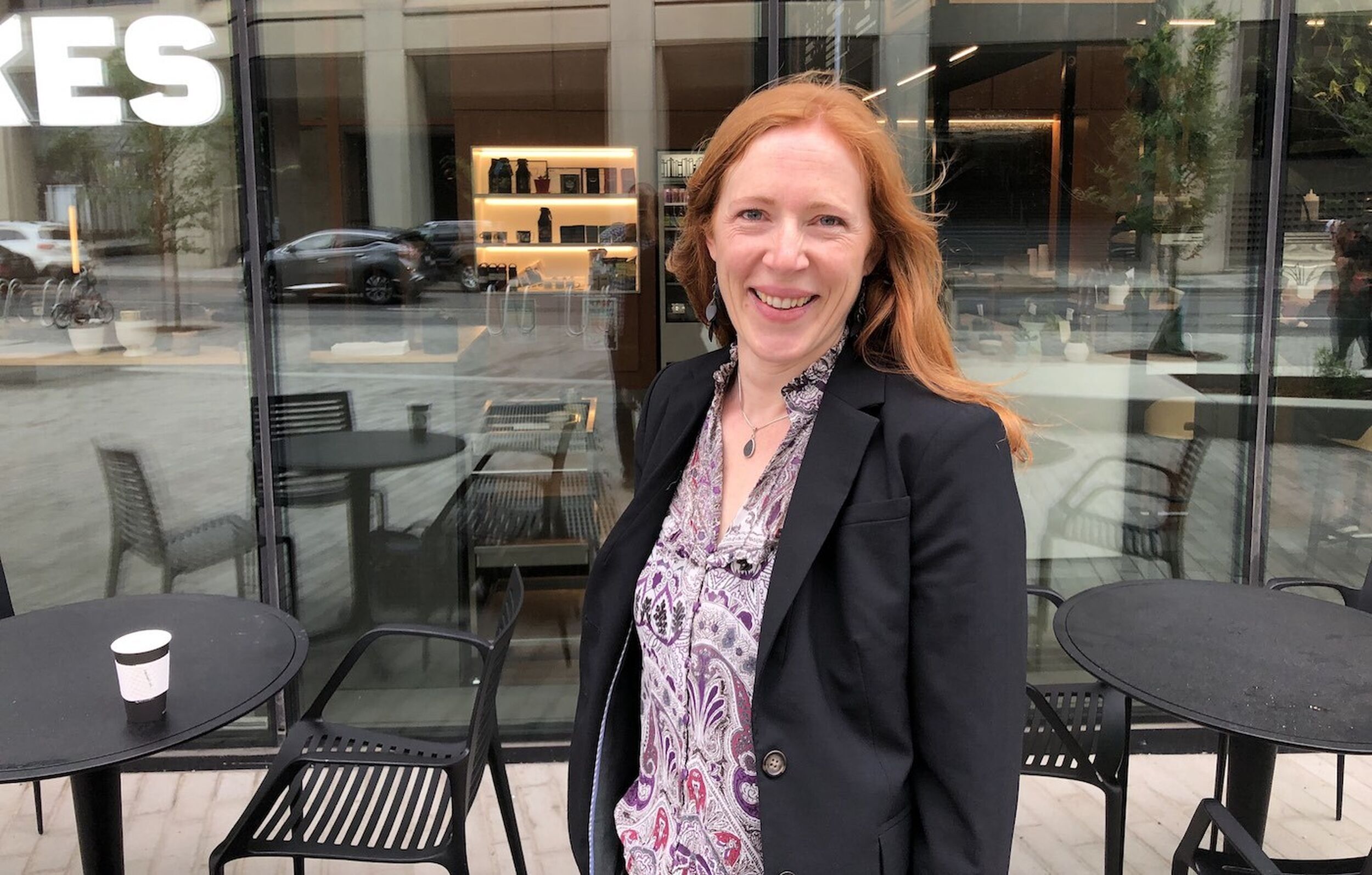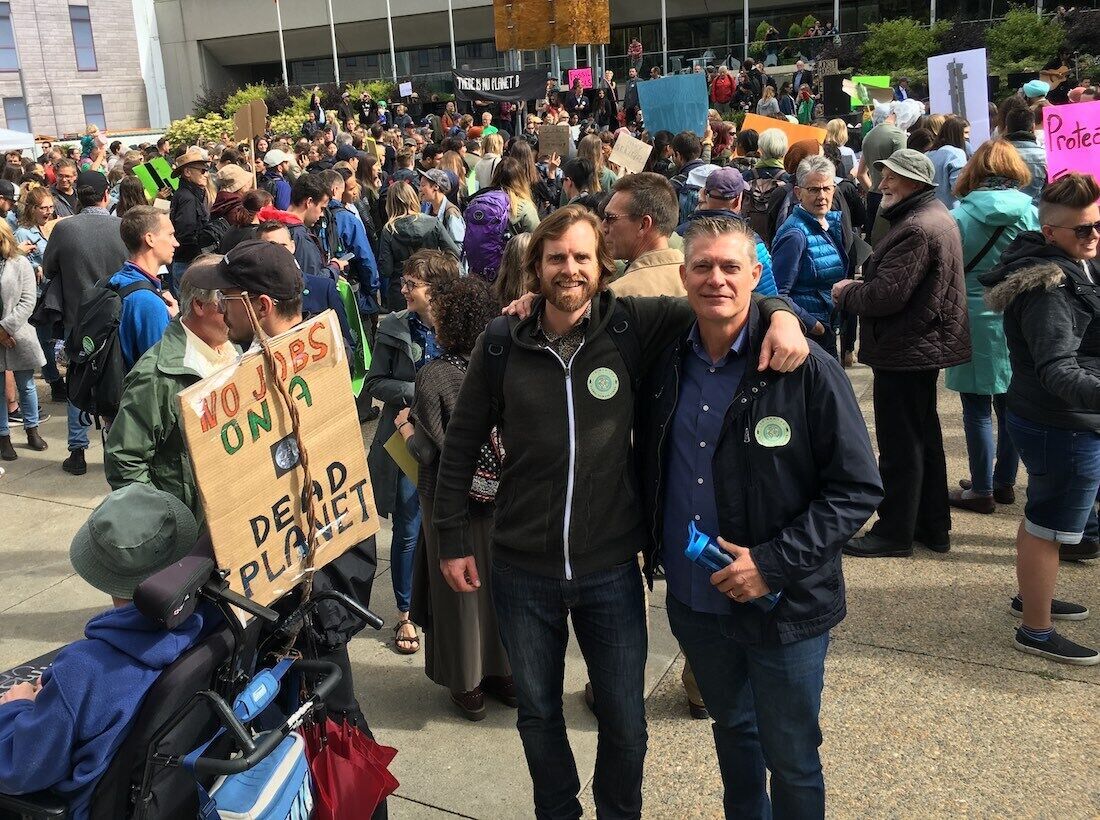
Alison Cretney of the Energy Futures Lab. Photo: Jeremy Klaszus
Sprawlcast Ep 21: The oil workers who welcome change
Depolarizing the dialogue.
We also hear from Alison Cretney of the Energy Futures Lab, a group trying to depolarize dialogue about energy in Canada.
Lliam Hildebrand worked as a boilermaker in the oilsands for about six years before launching Iron & Earth, a non-profit focused on renewable energy.
"Every time I went up there, I would have really interesting conversations with all my coworkers about the future of energy and climate change—and our role in contributing to climate change," Hildebrand said.
In 2015, as oil and gas workers were being hit by mass layoffs, these conversations became more focused.
"A group of us started meeting over the lunchroom tables every single day, trying to figure out what we could do to position ourselves in part of an industry that would be a little bit more secure for us."
"What we really realized is we didn't have to transition out of the oil and gas industry, but we could actually add additional work scope to our careers by upskilling into renewable energy technologies."

Hildebrand believes oil and gas workers are misunderstood in other parts of Canada, and says they care more about climate change than is often assumed.
"Look at who a lot of these workers are. A lot of them farm part time. A lot of them spend a lot of time off fishing and hunting... and by no means disrespect the planet."
"It's just common sense, you need a healthy planet to have work for the future.
I think the rest of Canada definitely has a misperception about who some of these workers are.
Alison Cretney is managing director of the Energy Futures Lab (EFL), a group trying to depolarize dialogue about the energy industry in Canada.
Her group brings together industry, entrepreneurs, Indigenous leaders, environmental groups and others. (Hildebrand is one of the group's "fellows.") The idea is to find common ground—not necessarily consensus—on transitioning to what EFL calls a "fit for the future" energy system.
Cretney believes polarization has kept Alberta and Canada "stuck" when it comes to energy issues.
"My sense is that if you just dig down a little bit underneath... there's a lot of fear," she said. "It's fear of change. I think humans are wired to generally not welcome change. And there's a sense of fear of what I might lose."
"I think the polarization feeds that, because what it creates is this sense of you have to be in one camp or another. And it really pushes us into those camps, and from there, there's no space to sort of empathize with the other side."
Jeremy Klaszus is editor-in-chief of The Sprawl.
Listen to the full Sprawlcast episode to hear more of what Hildebrand and Cretney had to say.
The Sprawl relies on reader support to do independent, ad-free journalism. Please consider pitching in. Become a Sprawl member today!
Support in-depth Calgary journalism.
Sign Me Up!We connect Calgarians with their city through in-depth, curiosity-driven journalism—but can't do this alone! We rely on our readers and listeners to fund our work. Join us by becoming a Sprawl member today!

